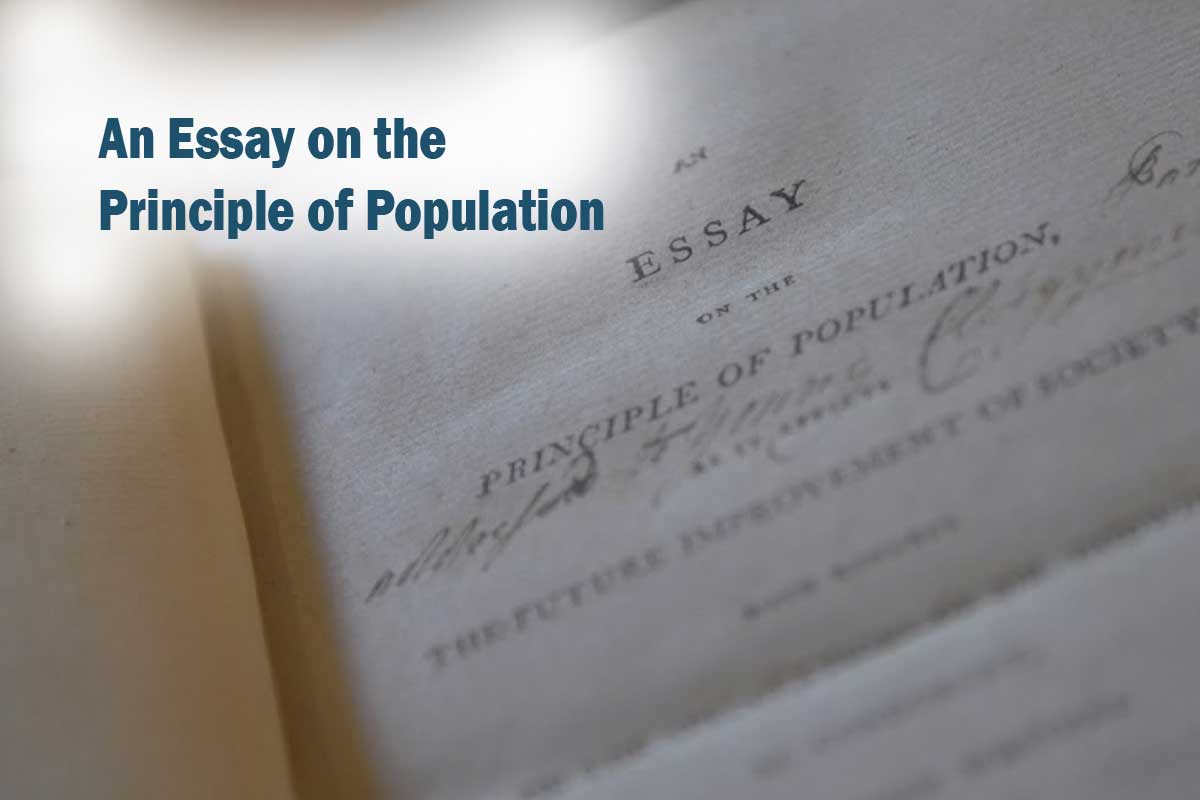The principle of population, as elucidated by Thomas Robert Malthus in his influential work, “An Essay on the Principle of Population,” examines the relationship between population growth and the availability of resources. Published in 1798, Malthus’s essay sparked significant debates and continues to be relevant in contemporary discussions about population dynamics and sustainability. This essay aims to explore the key ideas presented by Malthus, evaluate their strengths and weaknesses, and consider their implications for our understanding of population growth and its impact on society.
The Principle of Population: Malthus’s central thesis can be summarized as follows: while population tends to grow exponentially, the availability of resources increases at a slower rate, leading to inevitable checks on population growth. According to Malthus, these checks can be classified into two categories: positive checks, which include factors such as famine, disease, and war, and preventive checks, which encompass actions such as delayed marriages, abstinence, and birth control.
Malthus argued that population growth is inherently limited by these checks. If left unchecked, population would exceed the capacity of the Earth to sustain it, resulting in widespread misery, starvation, and ultimately, a decline in population due to the operation of the positive checks. Malthus saw these checks as necessary to maintain a balance between population and resources and prevent the suffering caused by overpopulation.
Strengths of Malthusian Theory: Malthus’s theory highlighted the importance of considering the ecological limits of the planet when discussing population growth. He recognized the finite nature of resources and the potential for overconsumption, which can lead to environmental degradation and social upheaval. Malthus’s theory also emphasized the need for responsible family planning and the promotion of sustainable practices to ensure the well-being of future generations.
Additionally, Malthus’s essay prompted further research and discussion on population dynamics, which has contributed to the development of demographic theories and policies. His ideas have shaped the thinking of subsequent scholars and policymakers, stimulating critical analyses of population growth and its consequences.
Weaknesses and Criticisms: Despite its contributions, Malthus’s theory has faced criticism over the years. One of the main criticisms is that it failed to account for technological advancements and their potential to increase resource availability. The Green Revolution, for instance, revolutionized agricultural productivity and helped feed a growing global population. Similarly, advancements in medicine and public health have improved life expectancy and reduced mortality rates.
Furthermore, Malthus’s theory has been accused of neglecting social, economic, and political factors that influence population growth. Issues such as poverty, unequal distribution of resources, and lack of access to education and healthcare can significantly affect fertility rates and demographic patterns. By focusing primarily on population growth and resource scarcity, Malthus’s theory may oversimplify the complex interplay of various factors that shape population dynamics.
Implications and Contemporary Relevance: Although Malthus’s theory may have limitations, it reminds us of the importance of sustainable development and responsible resource management. The global population continues to grow, and while technological advancements have temporarily mitigated some concerns, the challenges of resource scarcity, climate change, and social inequality persist.
Addressing these challenges requires a holistic approach that considers not only population growth but also economic systems, social equity, and environmental sustainability. It necessitates promoting access to education and healthcare, empowering women, implementing effective family planning programs, and adopting sustainable practices that reduce resource consumption and waste.
Conclusion: “An Essay on the Principle of Population” by Thomas Robert Malthus stimulated critical discussions on the relationship between population growth and resource availability. While his theory has faced valid criticisms, it serves as a reminder to consider the ecological, social, and economic dimensions of population dynamics. To address the challenges of a growing population, we must work towards sustainable development, promote equitable access to resources, and adopt responsible practices that ensure a harmonious balance between population and the environment.
